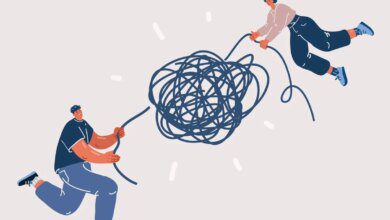
Foods that increase the risk of anxiety and those that reduce its symptoms
If you've ever felt jittery after eating processed foods, you're not alone! In fact, they may increase anxiety when other foods provide relief.
When you're feeling stressed and anxious, you may be tempted to go to a fast food restaurant and eat delicious food like french fries. Unfortunately, this can be a bad habit, since any fast food (french fries, chips, burgers, shawarma, pizza, etc.) can increase the level of nervousness and anxiety. They promote inflammation and are high in unhealthy fats. In addition, they do not contain fiber or micronutrients, substances that could help you improve your unpleasant condition.
Also, when you are in a bad mood, it is advisable to avoid drinking coffee! Yes, caffeine can increase your anxiety because it is a stimulant that causes symptoms such as excessive restlessness, increased heart rate, sweating, and restlessness. Instead, you can choose herbal teas, which have less caffeine than coffee.
- Alcohol can worsen anxiety symptoms because it changes serotonin levels in the brain and contributes to low mood and panic attacks.
What is recommended to eat
There are certain foods that can help reduce anxiety. These include fatty fish such as salmon and sardines. This type of fish is rich in vitamin D and omega-3 fatty acids, substances that improve well-being, fight inflammation and improve brain health.
- Uncontrolled anxiety can lead to increased levels of cortisol, the stress hormone. Since cortisol depletes omega-3 stores, eating salmon, tuna, avocado and walnuts helps us combat anxiety.
Include blueberries in your healthy food list as they are rich in nutrients such as vitamin C and flavonoids. These substances reduce neuroinflammation, which is associated with high levels of anxiety. Discover a delicious blueberry cheesecake recipe with just six ingredients!
- Yogurt, kefir, kombucha, quinoa, beans, green tea, and pumpkin seeds can also reduce anxiety.















